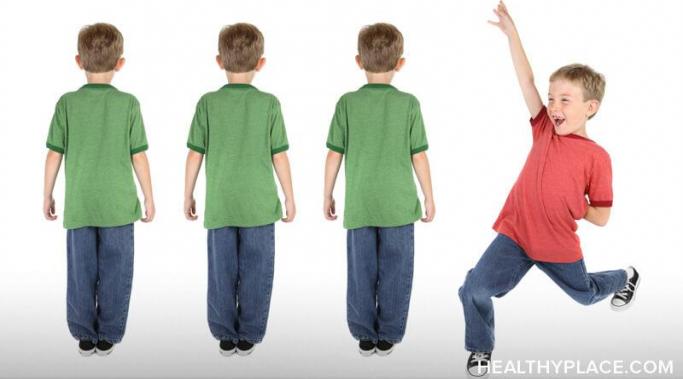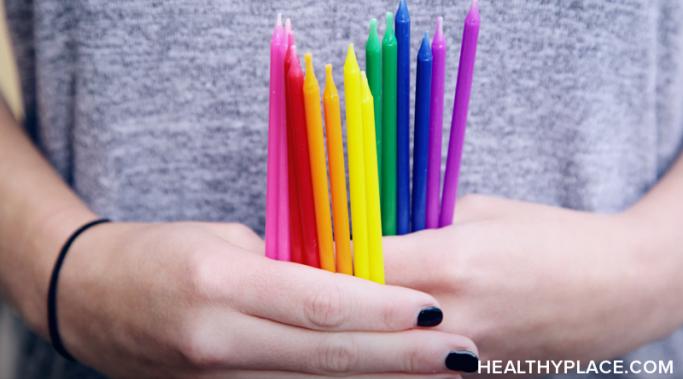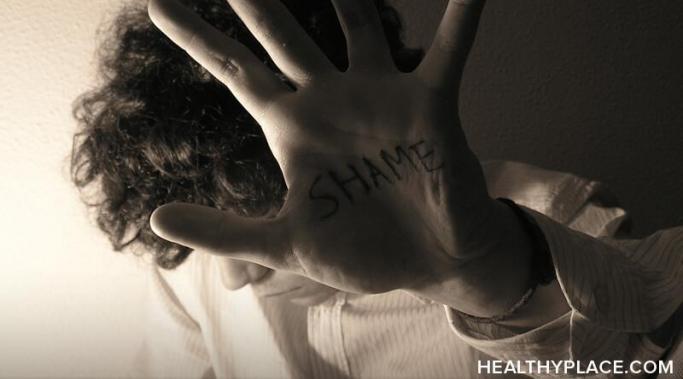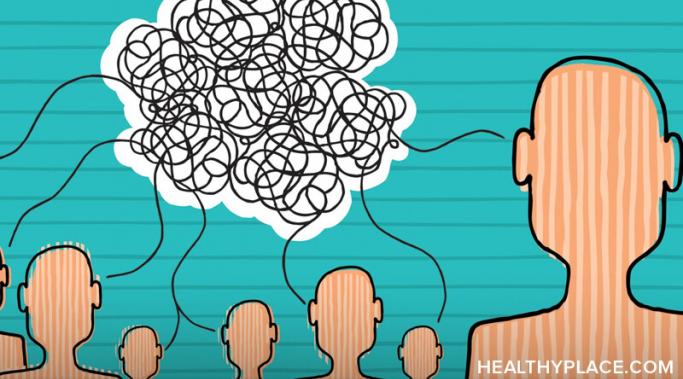Blogs
Our always-connected world means learning new skills is a mere click away. However, this is a double-edged sword for me thanks to attention-deficit/hyperactivity disorder (ADHD).
Something that I have learned about my anxiety is that it will always be there. It has been something that I have coped with since I was a teenager, possibly even earlier than that, and it is never going to go away. But there are things that I can do to lessen the effects of anxiety.
Acknowledging mental health progress has been difficult for me. Depression reminds me of the goals I have not met. Anxiety reminds me that I need to try harder in life. During my wellness journey, I am learning to recognize progress. Here are five techniques that are currently helping me.
In a recent blog, I talked a little about the fact that I restarted therapy for the first time in many years. Specifically, how it was a lot more difficult than I imagined it would be.
June is Pride Month, a time that People describes as "an entire month dedicated to the uplifting of LGBTQ voices, a celebration of LGBTQ culture and the support of LGBTQ rights." Like me, you have probably noticed various organizations post about the event on social media to showcase their solidarity. However, putting up rainbows online is often a move to appear progressive. Workplaces need to put in work every day to make a change. Because even today, queer employees are widely discriminated against at work -- to the extent that it harms their mental health.
Recovering from a verbally abusive situation is not an easy journey for most people, including myself. The internal damage to my psyche that I endured for years has shaped how I react to certain situations and the choices I make in my life. Part of my personal healing journey is learning how to retrain my brain to think and process my circumstances differently.
The road of recovery is a long and winding one, but these self-harm prevention exercises can help make it easier to stick to that road over the long run.
It would be a blatant lie to insinuate that eating disorder (ED) belief systems and thought patterns never cross my mind. Even with all the diligent, consistent recovery work I have put in over the years, I am still not immune to occasional insecurities, temptations, and criticisms from the eating disorder voice that once consumed each waking moment of my life. However, while I used to reactively listen and submit to this voice—no questions asked—I now understand there are healthier, more empowering alternatives. So how do I respond when these ED thoughts re-surface? I talk to my reflection in the mirror.
Late last summer, I went through weeks of acute panic and anxiety. I was very sick, and the mental and physical symptoms I endured were traumatic. I am in treatment to address those traumas, including the guilt and shame I felt from being sick and the residual guilt and shame I feel to this day.
When we recover from binge eating disorder (BED), or any other type of eating disorder, we are changing our way of being in the world. We change behaviors, our reactions to emotions, our environments, and the way we think about ourselves and compare ourselves to other people. Recovery is a massive internal and external renovation that is difficult to see up close. Sometimes, you can only notice changes when you compare how you feel today versus how you felt many years ago in eating disorder recovery.










My father was a really practical man with his hands whereas I hated this type of work. He was a senior rank in the fire brigade so was often dressing up like a peacock in full uniform.
I was told unless I did well at school I would end up being a dustman (trash man) and he taunted me with this very often. I was also mocked by him if I showed emotions with my father calling me "Jennifer" (a girls name that had no other significance) if I was hurt or upset etc.
I was the middle child of three age wise the other two being sisters.
If my father thought I was bad he would take me into the garden and whip me with a belt (he never touched my sisters).
My youngest sister remembers my mother sobbing whilst watching my father beating me but, my Mother never ever intervened at any point ever.
I have grown up a successful man work wise based on my being terrified to fail after my childhood taunting.
I recall my sisters telling me in adult life that they were surprised at my helping my father whenever I could considering how cruel he was to me, so I assume things were worse than I can remember (I do not recall much of my childhood which I am told by my therapist is my brain blocking horrible memories to keep me safe.
I realise also now that my father was a narcissist as it was always about him and his arrogance conforms with all I have read on the subject.
我开始喝酒在13年old (Cider initially) and I stopped alcohol at the age of 60 years old and found I was unstable with hypervigilance, anxiety, recurring thoughts, negative thinking etc which I believe after research that drinking alcohol was due to my need to "self medicate" and numb my emotions.
Sorry this is a long ramble but I wanted to explain how an awful parent can destroy a life due to his own mental health issues, which sad as it is is not the victims fault.
Thank you for you site.